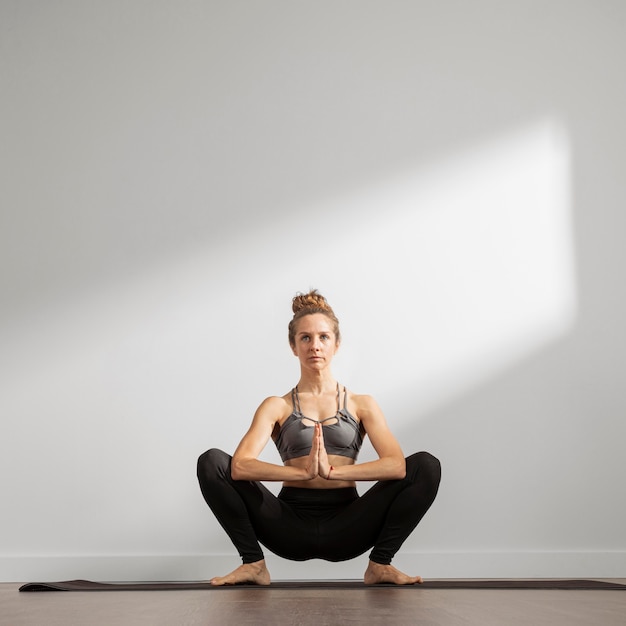
A yoga body isn’t just about flexible limbs. The ancient practice of yoga can actually help improve memory, heart health, and bone health, as explained by Anna Magee. The UK’s fascination with yoga is clear, with Brits spending a whopping £790 million yearly on yoga classes and equipment.
Yoga’s rising popularity has also brought some unusual trends like rage yoga, naked yoga, and even yoga with dogs. However, beyond the quirky variations, science is increasingly backing the physical and mental health benefits of yoga.
Researchers at UCLA discovered that a three-month course of yoga and meditation outperformed traditional memory exercises in minimizing age-related brain impairment. Another study highlighted its effectiveness in improving sleep among breast cancer survivors.
Lucy Edge, a former advertising executive, experienced these benefits firsthand. After falling into a deep depression, she turned to yoga instead of antidepressants. She took a six-month break to study yoga in India. Although she didn’t achieve the “yoga goddess” body, she found a level of happiness and contentment she hadn’t felt before. Lucy has since authored three books and started Yoga Meds, listing over 300 clinical trials that showcase yoga’s benefits for various conditions.
Yoga can sharpen both your mind and body. The UCLA study compared brain scans and memory tests between adults practicing yoga and those doing traditional memory exercises. The yoga group showed greater improvements in memory, reduced depression, anxiety, and increased resilience to stress.
Stress is a major contributor to heart disease. Yoga can help reduce stress hormones that raise blood pressure and heart rate. According to Dr. Mike Knapton from the British Heart Foundation, research suggests yoga can improve blood pressure, cholesterol, and weight – all risk factors for heart disease.
For those new to yoga, gentle styles like Hatha or Iyengar yoga are recommended. Charlotte Watts, a yoga teacher, and nutritional therapist suggests yoga poses that are specifically designed to reduce stress. Restorative yoga, which involves holding poses for up to 12 minutes with support, is also beneficial for deep relaxation.
Yoga also supports musculoskeletal health. Sarah Shone, a physiotherapist and yoga instructor, developed classes for back pain rehabilitation, leading to significant pain reduction for participants. Additionally, yoga’s emphasis on the pelvic floor helps manage incontinence and can increase bone density, making it a versatile option for various health conditions.
When starting yoga, it’s essential to use the right equipment. Investing in a quality yoga mat can make a big difference. Healthista recommends the Elephant Cork Yoga mat from Valka Yoga, which is eco-friendly, durable, and offers good padding for joint protection. Cork mats are especially good for those who sweat during practice as they become grippier when wet and resist odors. Matching cork yoga blocks can aid in stability and make challenging poses more accessible.
Whether you’re flexible or not, there’s a yoga style that can suit your needs. Yin or Restorative yoga involves gentle stretches supported by props, while Vinyasa Flow offers an energetic sequence that links movement with breath. Iyengar yoga focuses on precise alignment and uses props, making it ideal for beginners. Anusara yoga combines alignment with flowing movements and upbeat music, and Yoga Therapy addresses specific health concerns.
In summary, yoga offers significant benefits for your mental and physical health, with various styles and props available to enhance your practice.